MREP Makes Nationwide Return in 2022
Perspectives | Nov 22, 2022
The Marine Resource Education Program (MREP), a workshop series designed by fishermen, for fishermen, returned to in-person workshops around the country for the first time this year since the pandemic put the gatherings on hiatus. Here are some highlights.
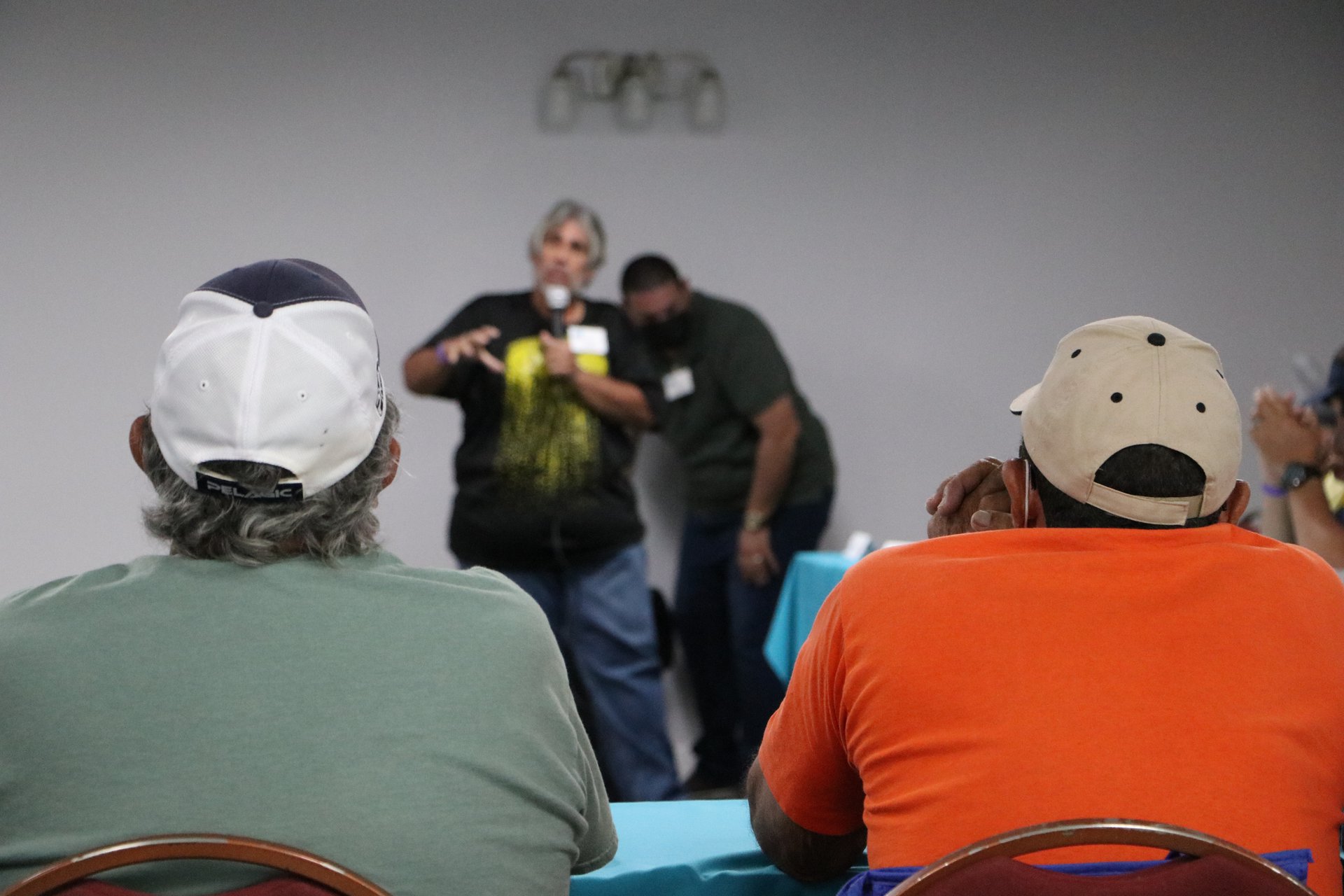
A Return Worth Celebrating
Across the country this year, a dormant force sprung back to life as fishermen, scientists, and fishery managers returned to in-person Marine Resource Education Program (MREP) workshops for the first time since the pandemic put the gatherings on hiatus. The thrum of passionate discourse, hand-raising, and nodding heads permeated the shared air of conference rooms in Maryland, California, and Puerto Rico. Dining rooms and hotel lounges bustled with the sounds of networking, clinking silverware, and relationship building. It was the kind of energy that only an experience designed by fishermen, for fishermen could generate.
MREP workshops are designed as a collaboration between regional industry leaders. The workshops are moderated by fishermen, who help fisheries scientists and managers articulate complex concepts in a concrete, approachable way. When fishermen, scientists, and fishery managers have the chance to share a neutral platform and partake in dynamic educational experiences like these, the positive impacts are palpable. That’s why it’s more important than ever to provide fishermen with access to workshops like MREP — workshops that empower them with a better understanding of how, when, and where to go to engage effectively in fisheries science and management processes.
Here are some of the highlights of those positive impacts from four in-person workshops (out of six total) held in 2022.
MREP Greater Atlantic Fishery Management Workshop
Hanover, MD
This cohort of fishing industry members participated in a successful Fishery Science Workshop in early 2020, but the onset of the COVID pandemic disrupted plans to attend the second three-day workshop in the series focused on fishery management. After two long years of waiting (and one virtual workshop refresher on fishery science), participants gathered in Hanover, Maryland to kick off the second phase of their MREP experience.
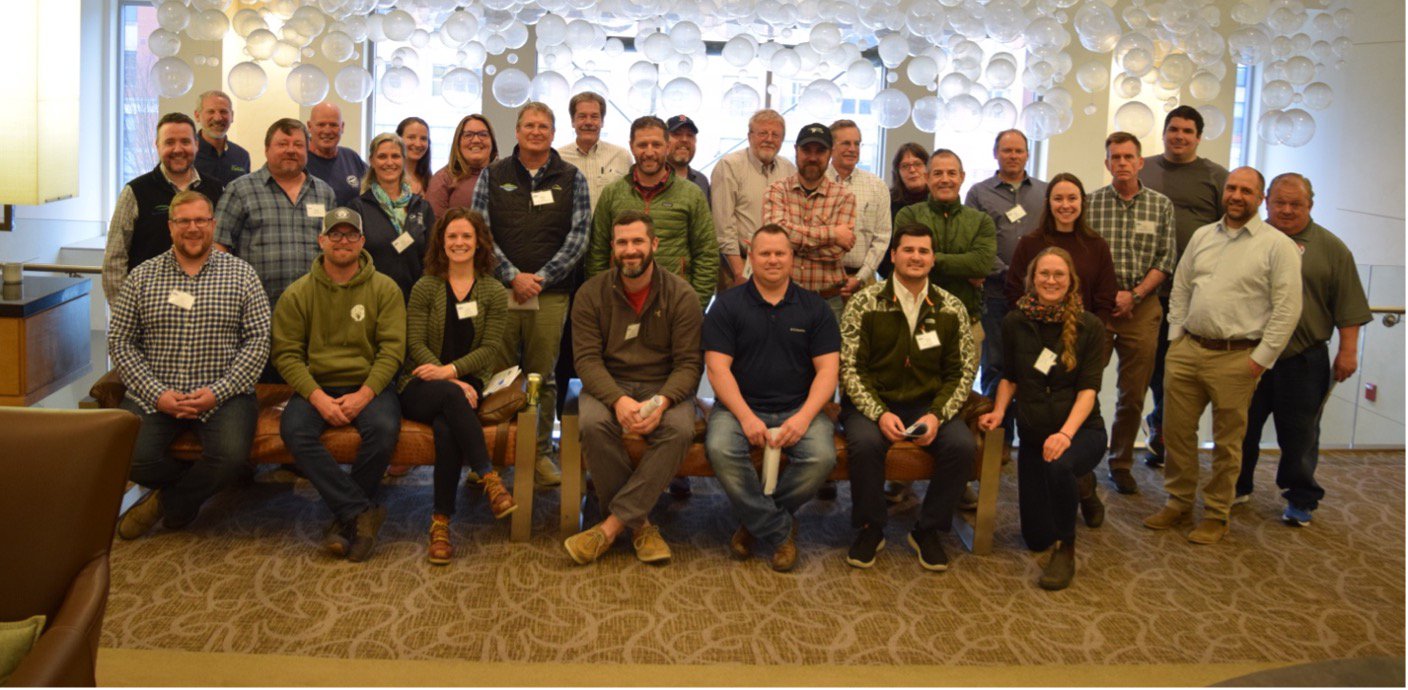
One of the major highlights from this workshop was a presentation by fishermen and industry members George LaPointe, Hank Soule, and Jimmy Ruhle, who taught participants how to take an issue they cared about and lead it through the different stages of the management process from start to finish. In this talk, called Participating and Contributing to Management, fisherman Jimmy Ruhle had a particularly strong impact on attendees. Ruhle, the President of Commercial Fishermen of America and a member of the Mid-Atlantic Fishery Management Council for nine years, is a strong and respected voice in the industry.
“One of the most valuable parts of the entire workshop was having a seasoned fisherman share his experiences with fisheries management and science. His candid presentation in the context of the workshop shapes the rest of the workshop content into a realistic experience,” said one MREP Greater Atlantic participant. “The relatable examples [Rhule] gave demonstrated the importance of being prepared and effectively engaging in management.”
A post-workshop survey also highlighted one of the major successes of this workshop: 100% of the respondents (14 out of 16 attendees submitted responses) said that they were inclined to share the information and resources they learned in this workshop with their community.
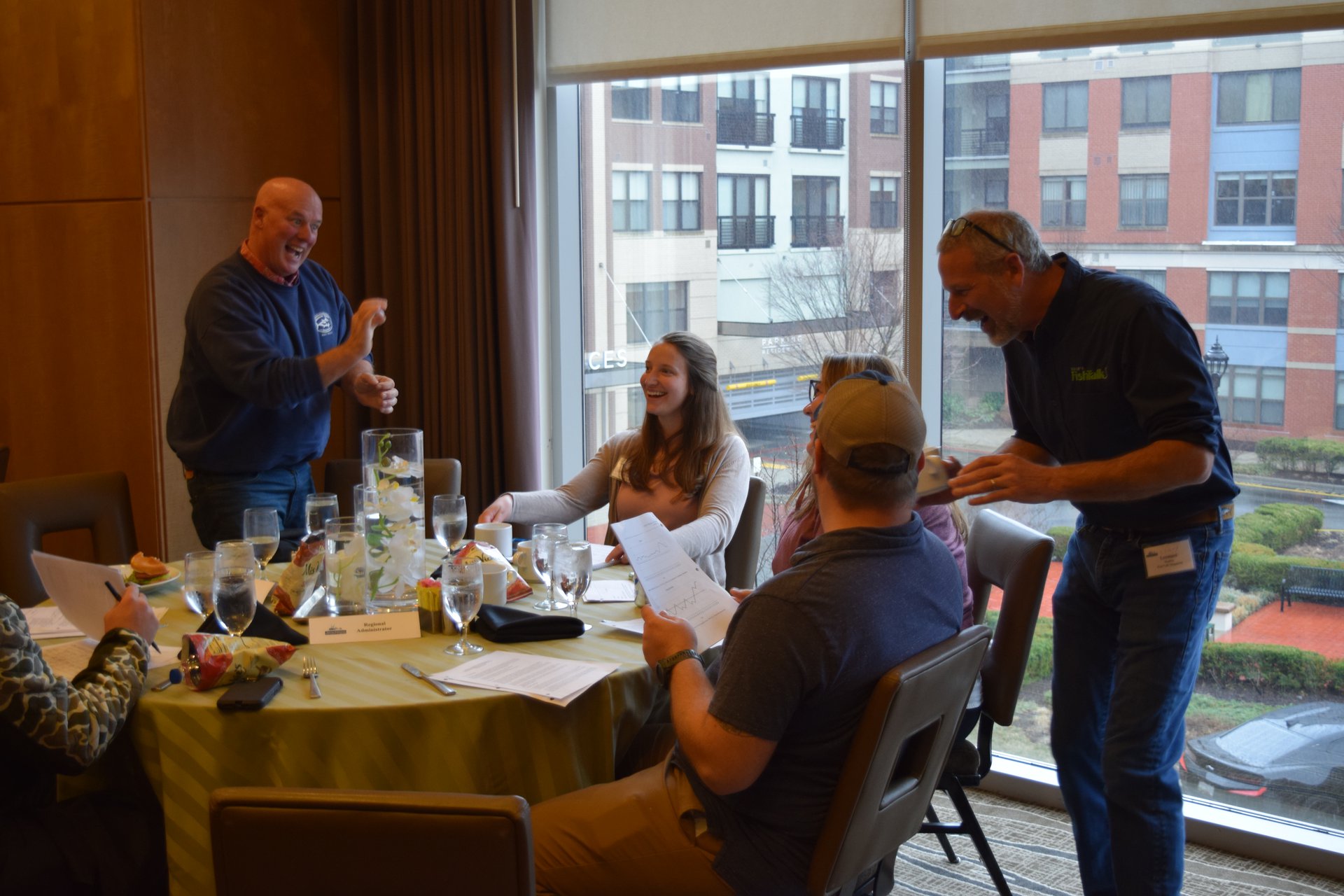
As with each workshop, the networking aspect seemed to be one of the most valuable components to participants.
“[Networking] was the best aspect of the session. I met and was able to speak with attendees from various sectors and backgrounds, and was able to learn from their perspective and experience. Some of those connections will pay immediate dividends, and some will clearly be useful in the long-term.”
MREP Greater Atlantic Workshop Participant
MREP Southeast Fishery Management Workshop
Tampa, FL
The workshop in Tampa had a diverse cohort of participants that spanned the entirety of the Gulf of Mexico up to North Carolina, and also included Vanessa Ramirez, who owns a fish house in Puerto Rico and sits on the Caribbean Fishery Management Council. As with the Greater Atlantic workshop, this cohort’s MREP experience was split over the course of two years by the pandemic.
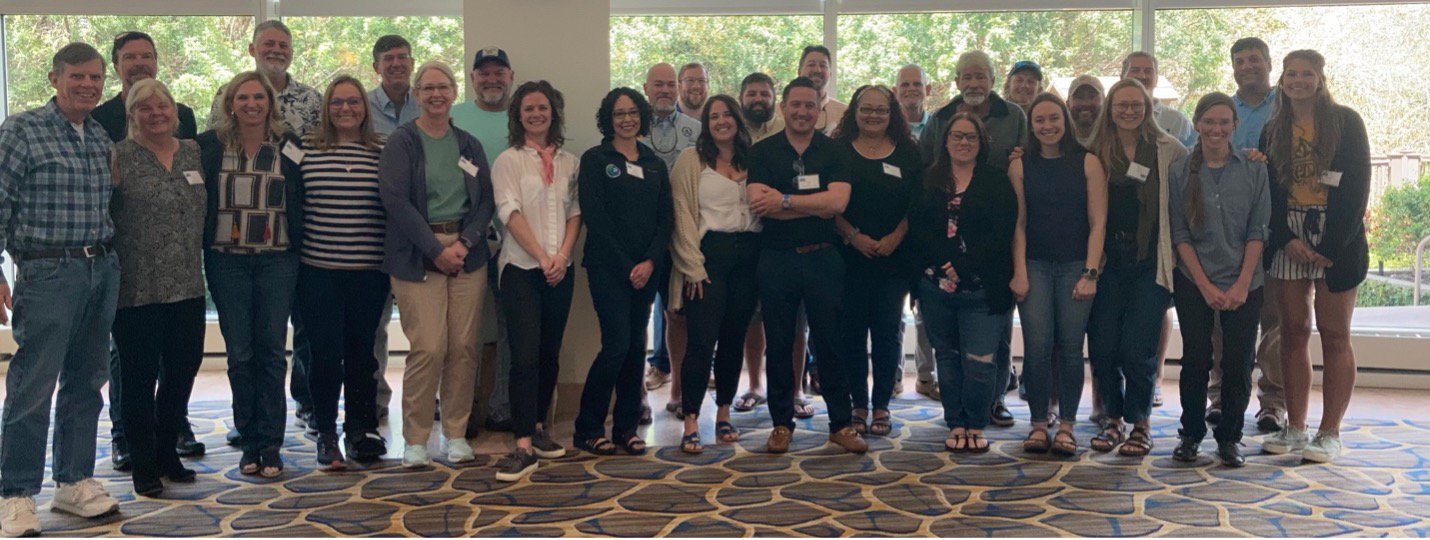
The main purpose of these fishery management workshops is to break down the complex management process into components useful to busy and hardworking fishermen — and show fishermen when and how they can get involved. Lawyers, too, have attended and learned a lot in these workshops, underscoring the complexity of fisheries management. We cater the program to fishermen who don’t speak legal or scientific jargon but who bring on-the-water knowledge to the table, which helps build a shared language between scientists, managers, and fishermen.
"“Having a better understanding of the management process will give me the confidence to not only engage more but to recruit others to engage as well.”
MREP Southeast Workshop Participant
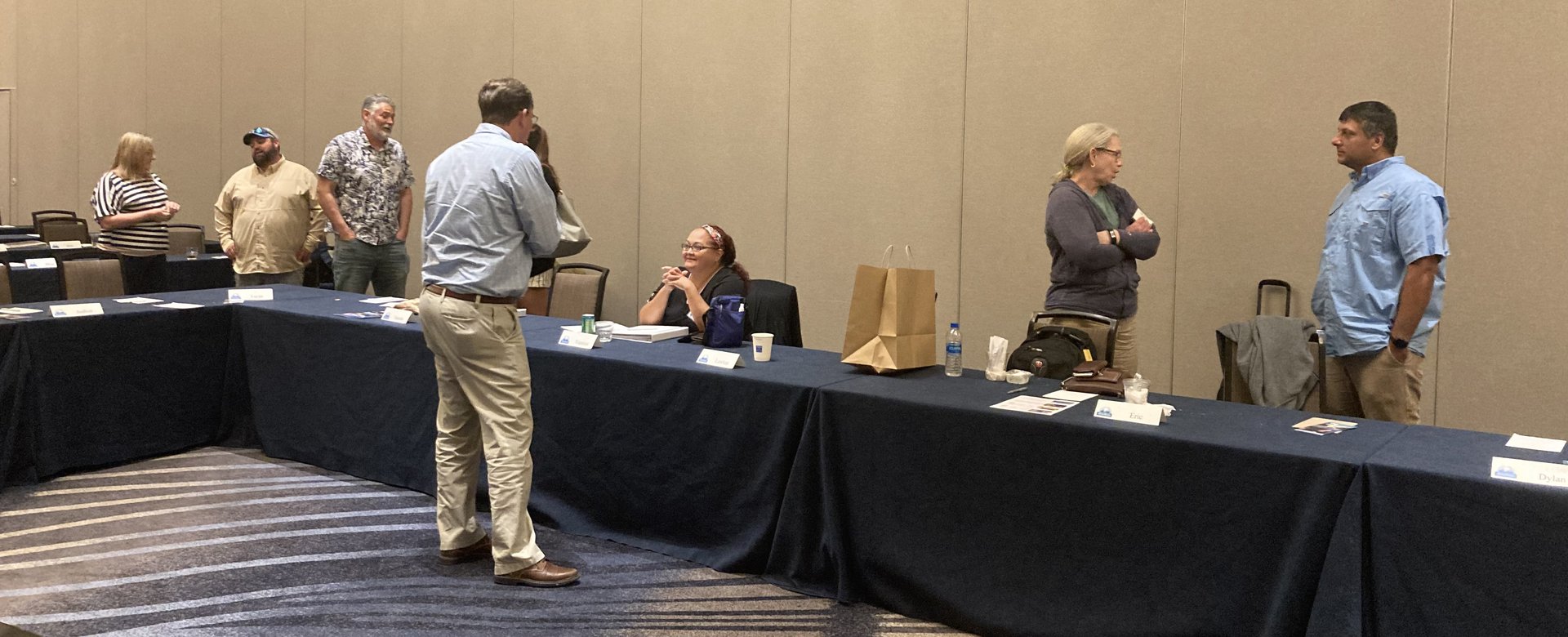
Another major success from this workshop came from a role-playing exercise, where participants assumed the roles of different players involved in the Fishery Management Council process and had to work together to reach an agreement. The exercise forces participants to view different stages of the federal management process through the perspectives of fishermen, Council members, scientists, and others.
This exercise also creates an opportunity for fishermen to practice leadership roles in a risk-free environment. The Council process is rife with legal jargon language and other formalities that can be intimidating. This exercise helps people to understand the timeline for making regulatory changes and sets their expectations so they are prepared to show up when it matters most.
“The role playing Council exercise was extremely eye-opening. I have a vast amount of respect for the job of the Council members.”
MREP Southeast Workshop Participant
All MREP regions have a version of this role playing exercise strategically crafted to address the nuanced regional differences between Fishery Management Councils across the United States.
MREP West Coast Fishery Science & Management Workshop
La Jolla, CA
The MREP West Coast Fishery Science and Management workshop was a five-day program that included a deep dive into both fisheries science and fisheries management in one jam-packed week. This was the first ever full five-day session across any MREP region — an exciting opportunity MREP regional leadership embarked on after the pandemic to ensure participants get the whole experience in one uninterrupted week. Throughout the week, presenters demonstrated the intimate relationship between science and management.
Fishermen experienced in the process shared their insights into how other industry members can get involved.
In addition to engaging in the Council process, fishermen play a critical role in collaborative research efforts. They have highly specialized knowledge and experience that can help develop creative ideas, tools, and solutions to address challenges facing fishing communities across the country. MREP provides a space where fishermen can learn how to gather buy-in, seek support, and integrate their ideas into the regulatory process.
For example, sport fisherman Chugey Sepulveda showed off his deep-set buoy gear designed for bycatch reduction of highly-migratory species. Dan Walford, a recreational angler and former chair of the Pacific Fishery Management Council, explained his work using recompression devices to reduce bycatch mortality. All of the demonstrations described the process of working with the management council as ideas moved from proposals to actively employed tools. A panel discussion further emphasized this process, providing fishermen with insights on how to provide input into the management process.
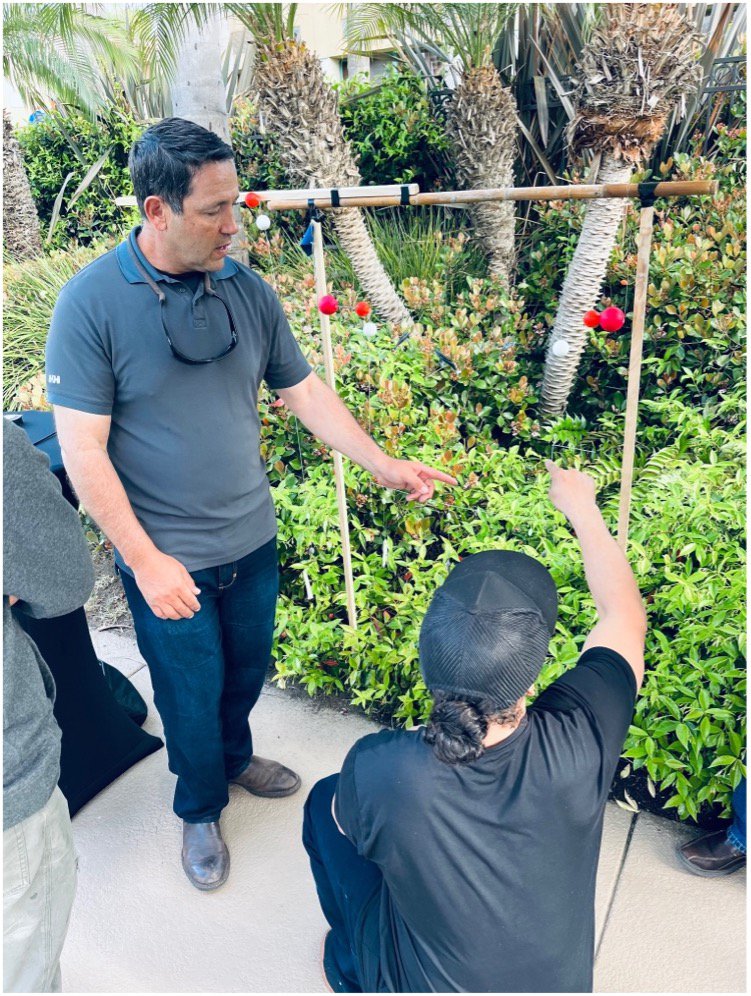
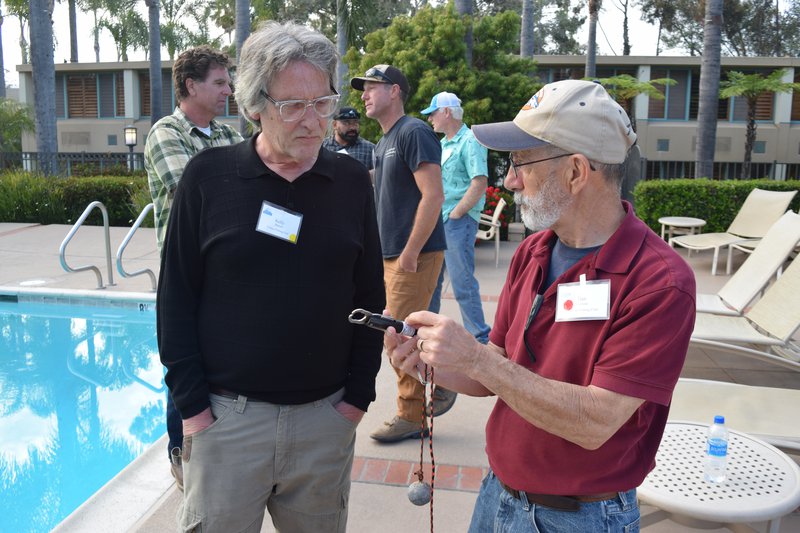
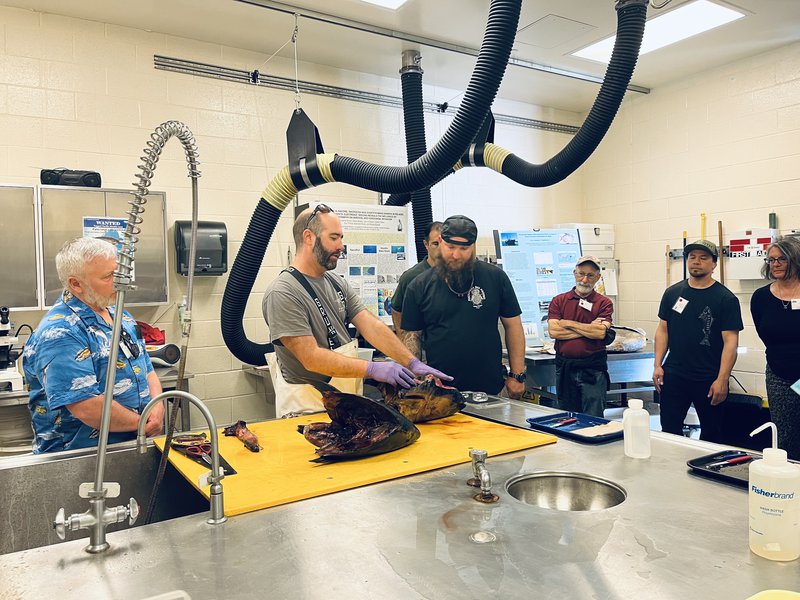
During a trip to the Scripps Institution of Oceanography, fishermen got hands-on experience learning about the critical loop between data collection, data aggregation, and stock assessment outputs. Attendees learned how the data scientists collect aboard their vessels (and elsewhere) is incorporated into the stock assessments that directly impact fishing operations. Presenters from the NOAA Northwest Fisheries Science Center then pulled all the concepts together in a presentation that included “stock assessment bingo” and demonstrated how stock assessment outputs are used to determine what management measures ought to be taken for optimal stewardship of the resources. More importantly, the combination of fishery science and management backgrounds around stock assessments taught fishermen how they can get involved in the data process early and often to help create stock assessments that more accurately reflect what they see on the water.
In the latter part of the week, when the workshop shifted focus toward fishery management, fishermen learned where, how, and when they can get involved in the management process. A major takeaway from this five-day event was that fishermen realized they have voices in the management process and can actively participate in and shape management decisions.
“Generally understanding the whole management process has been the most valuable. Pre-workshop, I believed we had no say in the matter. Now I see that is incorrect.”
MREP West Coast Workshop Participant
Not only do fishermen leave these workshops more confident and motivated to engage in their regional management processes, but they also do so with a newly forged, diverse set of relationships ready to support their efforts.
“I've made great connections in the industry and on a personal level. I'm not the most social person, but these events made it easy. Through these connections, I will become more involved in my local community and the council meetings.”
MREP West Coast Workshop Participant
MREP Puerto Rico Fishery Science & Management Workshop
La Parguera, PR
In August, fishermen from all sides of Puerto Rico convened in La Parguera to partake in a three-day science and management workshop, and the energy was electric.
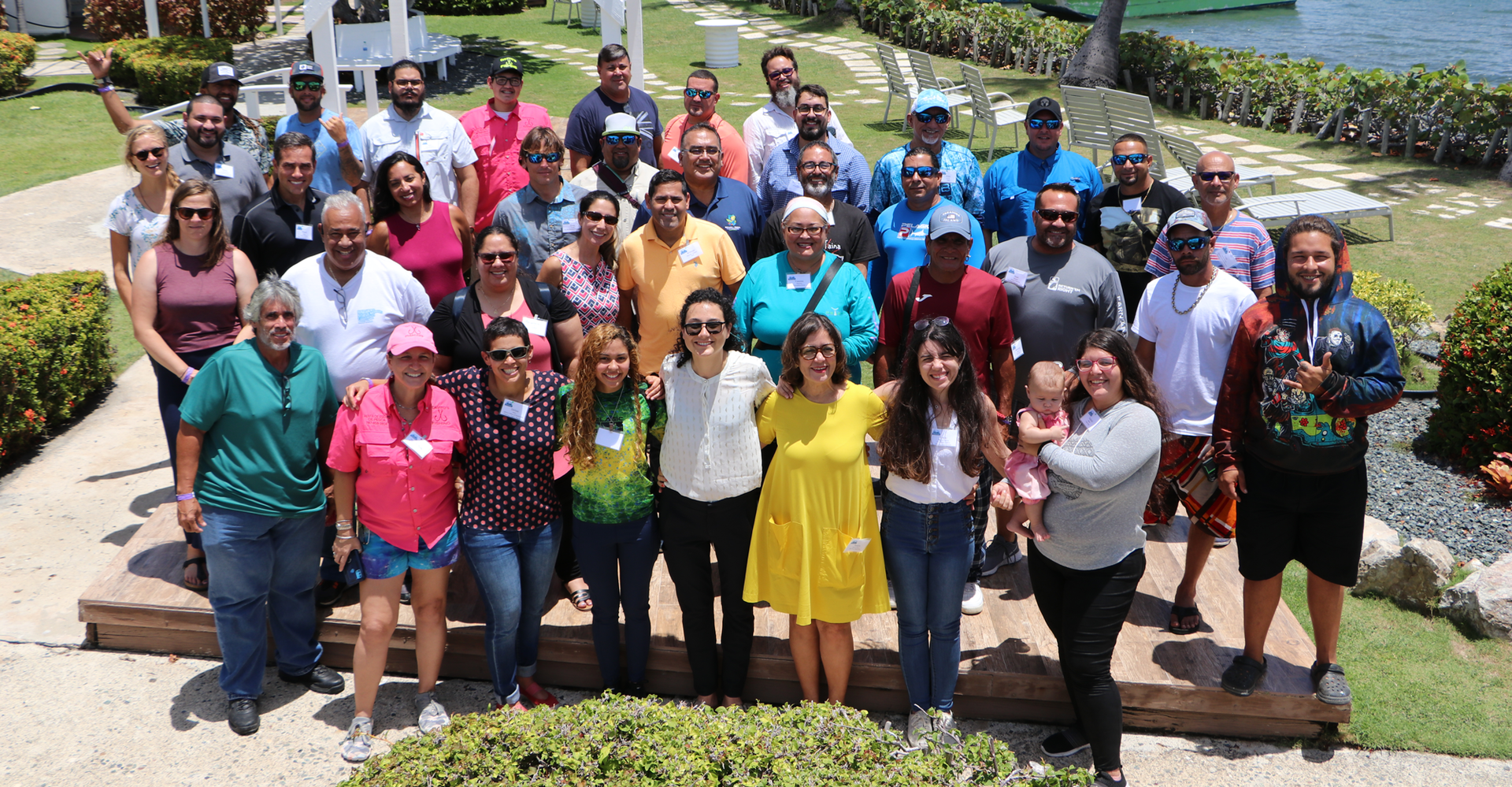
The first day of the workshop started off with a bang as participants ferried over to Isla Magueyes, where they rotated between presentations and fish dissections from marine scientists at the University of Puerto Rico, learned about sea urchin and coral nurseries, downloaded ocean observing tools such as CARICOOS, and more. These site visits and hands-on activities are integral parts of each regional workshop.
Informal gatherings were built into the day’s agendas, and these moments allowed connections to happen between fishermen, fishery managers, scientists, an enforcement agent, and others who would likely not have met if not for the space MREP provides. Members of all of these groups emphasized the value that networking in La Parguera provided.
“If I don’t have this opportunity to get to know people and I’m just sitting in my office with a bunch of data, and I don’t get to know the fishermen, and I don’t get to know the enforcement agent, I feel like I’m working alone. And the problems we’re trying to solve need us to be working together.”
Adyan Rios Research Fisheries Biologist
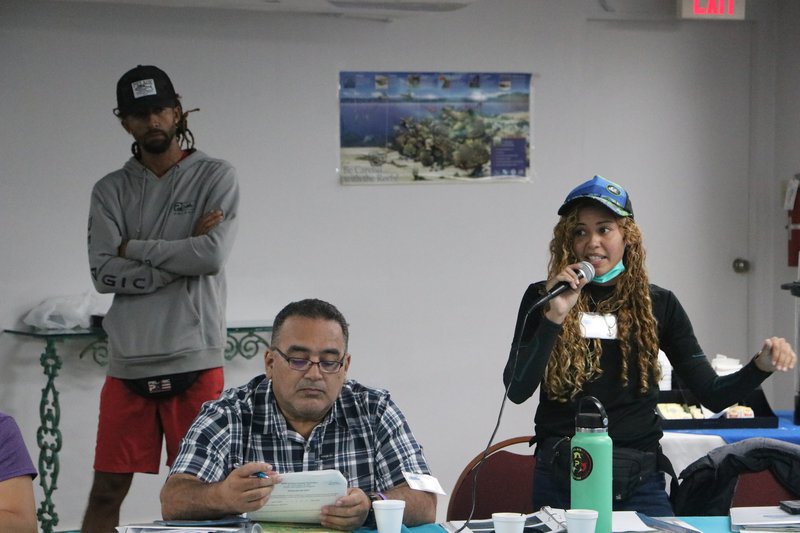
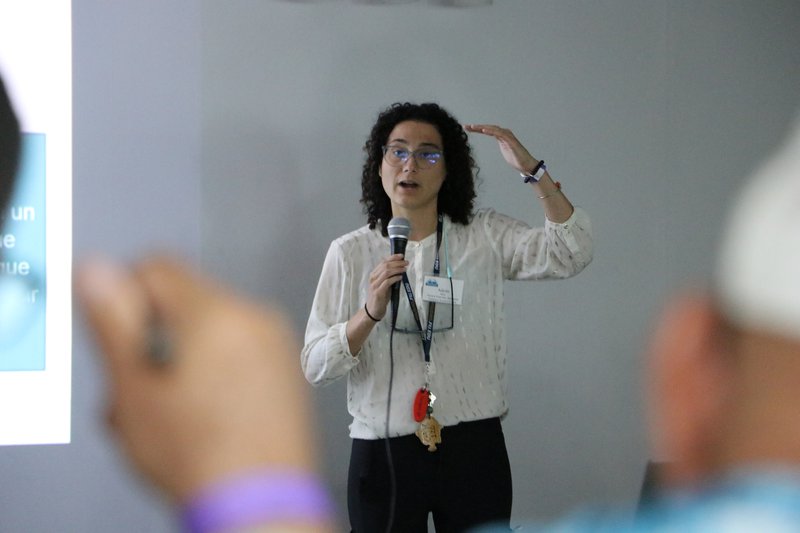
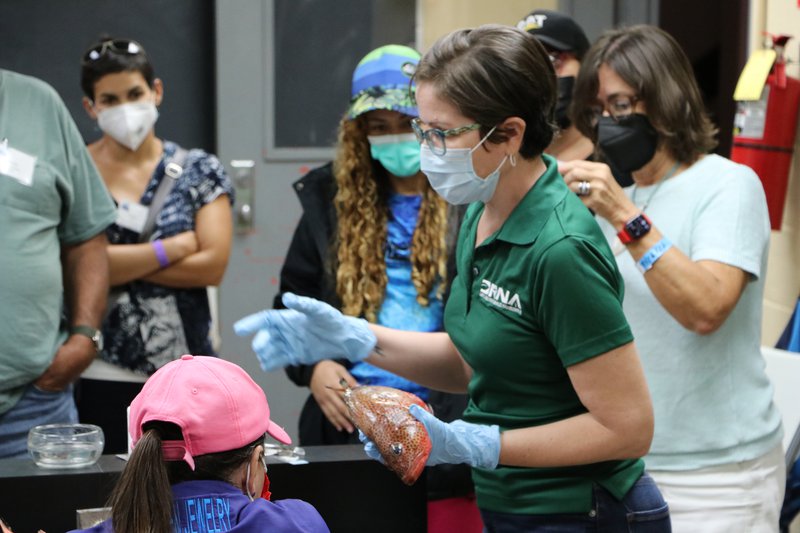
“This workshop is awesome simply because you are bringing knowledge to the field. Most of these people don’t know that the Caribbean Council exists. It’s also great because you get the entire community involved. In order to have good management, you have to do that.This is teamwork. You cannot make a confident management plan if you don’t come with all the parts. You need everyone if at the end of the road you want a good product."
Nelson Crespo Commercial Fisherman
The entire workshop was conducted in Spanish, with the specific issues discussed tailored to the most prominent challenges Puerto Rican fishermen are currently facing, including data collection and enforcement. Entire families of fishermen attended the workshop — including a fisherman who has been harpoon fishing for over four decades. However, he expressed, experience on the water doesn’t always equate to experience in the management process.
“We’re here because of the doubts that all the fishermen have around things they don’t know about — so basically to learn all that we can learn about the fishery management process. We know about getting the fish, selling the fish, and that stuff, but all of this is new to us. Everybody in the family is either a fisherman or sells the fish, but based on the knowledge we got from this workshop around the administration side, we are going to put it into practice every day.”
MREP Puerto Rico Workshop Participant
A Welcome Return
The value MREP provides to fishermen, scientists, and fishery managers cannot be understated. A growing number of fishermen feel more comfortable approaching scientists, managers, and industry leaders who used to just be names they had heard of. Scientists and fishery managers have demystified some of the complexities and confusion behind how management decisions are made, and in doing so have taught fishermen how they can help shape those decisions by getting involved. Stages of the management process that formerly may have led to contention may instead now lead to collaboration. The list of benefits from the MREP workshops goes on, so it’s no surprise that the program is expanding to the North Pacific Council region (including Alaska), delivering the first workshop in April 2023.
Participants from this year were in unanimous agreement over the program's impact, with 100% of survey respondents saying they would recommend this program to their colleagues. None of this work would be possible without the hard work of the MREP National Steering Committee, the regional steering committees that tailor each workshop for maximum positive impact, and especially the passionate and hard-working fishermen who are the foundation of the program.
Read More
-
![Marine Resource Education Program (MREP) In-Person Workshops Resume]()
Marine Resource Education Program (MREP) In-Person Workshops Resume
Across the country, fishermen eager to engage effectively in fisheries science and management processes will be returning to in-person to MREP workshops throughout the year.
Tidings
-
![MREP in Puerto Rico]()
MREP in Puerto Rico
In August, our Marine Resource Education Program (MREP) team headed to La Parguera, Puerto Rico to host a three-day workshop for a mix of recreational, …
Tidings
-
![Marine Resource Education Program Goes West]()
Marine Resource Education Program Goes West
In August of 2016, the Marine Resource Education Program (MREP) team hosted their first fisheries science workshop on the West Coast.
Announcements


